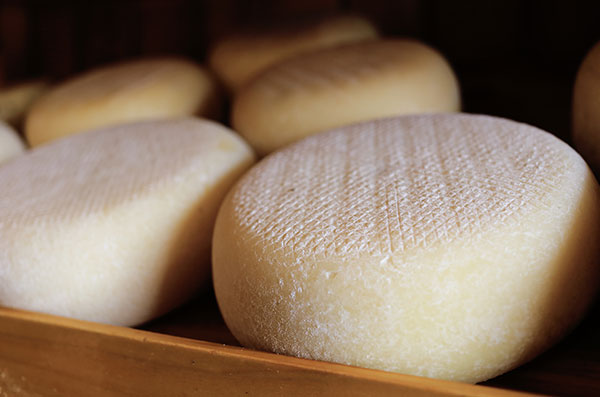 Ah yes, the winning combination of wine and cheese. Enter the world of sophistication. The wonderful pair dance in harmony as both treat the taste buds to an exciting culinary journey. The wine, as the ocean of relief and bringer of radical thoughts, gives proper balance to the different textures of well-aged cheeses. Do not be fooled though: wine and cheese are not only found in posh soirees – the dynamic duo can always be served in parties big or small, and in simple get-togethers. It is, however, important to take note that you cannot just come up with different combinations of wine and cheese. If paired improperly, the consequences can be disastrous since both might end up being a gustatory disappointment. One must be a perfect complement to the other, and taste should be top priority.
Ah yes, the winning combination of wine and cheese. Enter the world of sophistication. The wonderful pair dance in harmony as both treat the taste buds to an exciting culinary journey. The wine, as the ocean of relief and bringer of radical thoughts, gives proper balance to the different textures of well-aged cheeses. Do not be fooled though: wine and cheese are not only found in posh soirees – the dynamic duo can always be served in parties big or small, and in simple get-togethers. It is, however, important to take note that you cannot just come up with different combinations of wine and cheese. If paired improperly, the consequences can be disastrous since both might end up being a gustatory disappointment. One must be a perfect complement to the other, and taste should be top priority.
Did you know that there’s almost a thousand known cheeses in the world? But there is no such thing as the “god cheese.” No one cheese can suffice in all things culinary related. Each one is made to cater to different methods when it comes to ingredients or indulgences. Each cheese varies in taste, moisture, fat ratio and texture. And when it comes to wine pairing, there is a lot more to consider.
Wine, on the other hand, is far from simple as well. With age comes experience—enhanced taste if you’re talking about wine, of course. Wine has many variations like cheese so you must take into consideration its acidity, sweetness or sparkle.
So how do you pair wine and cheese?
You can classify cheeses into five types to prepare for wine pairing; otherwise, it would be difficult to match each one with a different wine if you do it one by one. Here are the groups:
- Fresh and Soft Cheeses

In the dairy department, these cheeses are the most perishable among the bunch. Fresh and soft cheeses have rich and creamy flavors. One would notice their clean texture and how straight and light it tastes in the mouth. Cottage, feta, ricotta and cream cheese fall in this department.
Fresh, soft cheeses go perfectly with sparkling wine because it doesn’t wipe the aftertaste clean with astringency because these wines are immaculately low on acidity. Go with Sauvignon Blanc, Champagne or Pinot Grigio.
- Medium Hard and Medium Aged Cheeses

These cheeses are on their way to become pungent, but would you wait that long? Cheeses that are semi-hard and semi-aged have a stronger texture and a bolder flavor. Because of their age, these cheeses are drier than those that are fresh and new. Cheddar—a crowd favorite—falls in this category; two more famous cheeses fall in this category: Havarti and Monterey Jack.
Wines that go well with these cheeses are: Red Burgundy, Pinot Noir, Beaujolais and Dolcetto.
- Smelly Cheeses

Don’t mistake these cheeses as repulsive; they are at the top of their game on their own. These stinky cheeses are the favorite of cooks around the world because of their impeccably good taste. It’s not for the unfamiliar cheese indulgers, as having the palate to handle the flavor is a somewhat acquired skill. Presenting, the smelly cheese department: Epoisses, Limburger, Taleggio and Morbier.
Certain wines that complement smelly cheeses are Gewürztraminer or German Scheurebe.
- Blue Cheeses

Now, don’t tell me you’ve never heard of a blue cheese? This cheese is absolutely famous! The blue color of the cheese veins comes from aging and good bacteria. Any type of blue cheese is a must-try because of its full and rich taste.
Blue cheeses can be salty, pungent, and sometimes spicy. The recommended way to match the depth of their flavor is with sweet wines. In short, choose wines which are sweet, fruity and sporting good acidity, like Sauternes, Ontario or Sweet Sherries.
- Hard Cheeses

The hardest to bite in the cheese department, hard cheeses are fully aged and have extremely powerful flavors. They are very handy when it comes to grating and are commonly used in different cooking methods. Famous ones include Pecorino, Manchego and Asiago.
Your best bet for pairing is white wine like aged White Burgundy or White Rhône Blends.
And that’s it for our wine and cheese pairing tips. Hope you get to try these soon. Salut!






